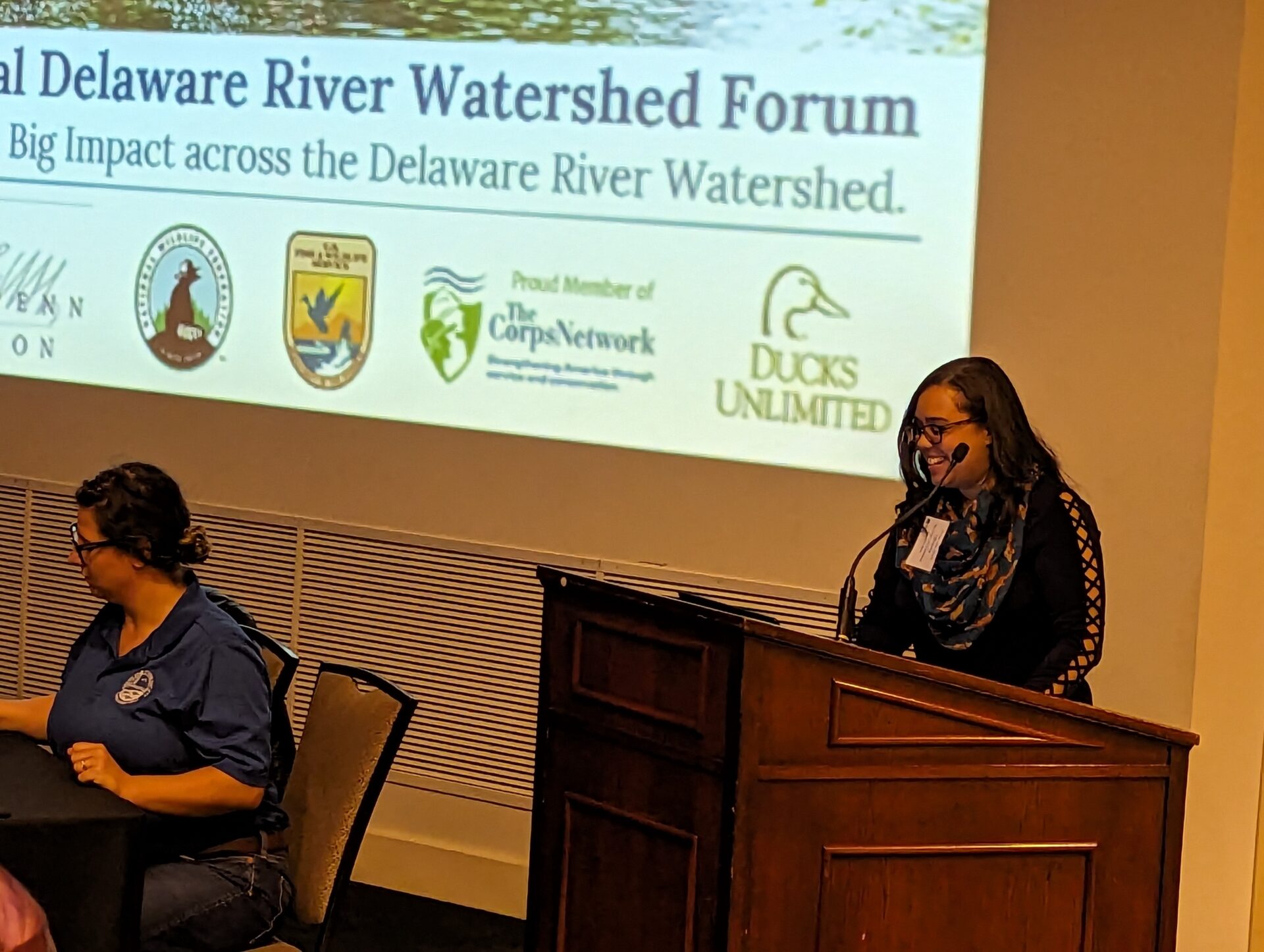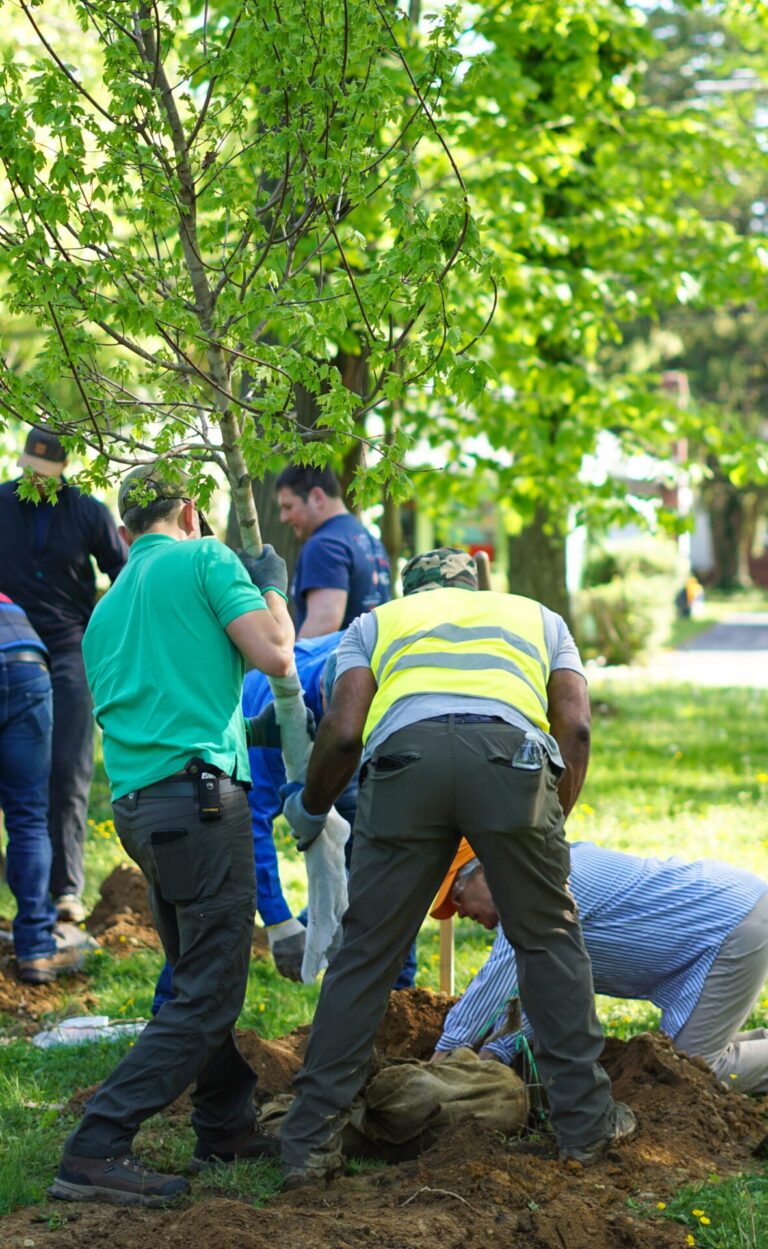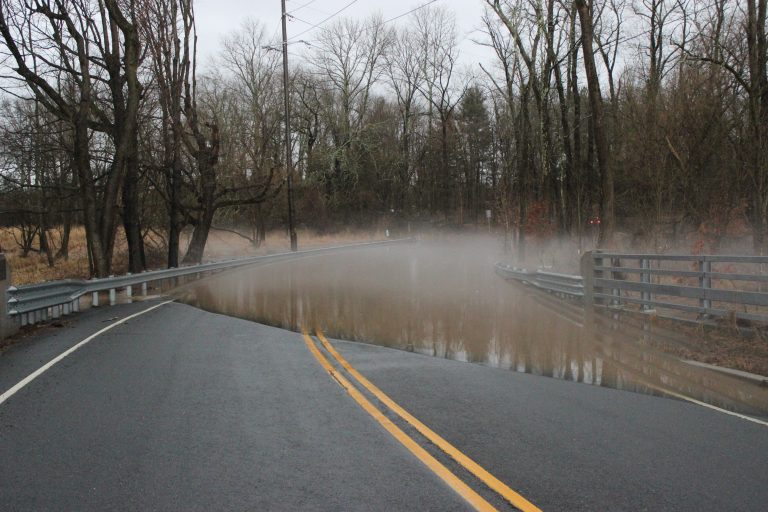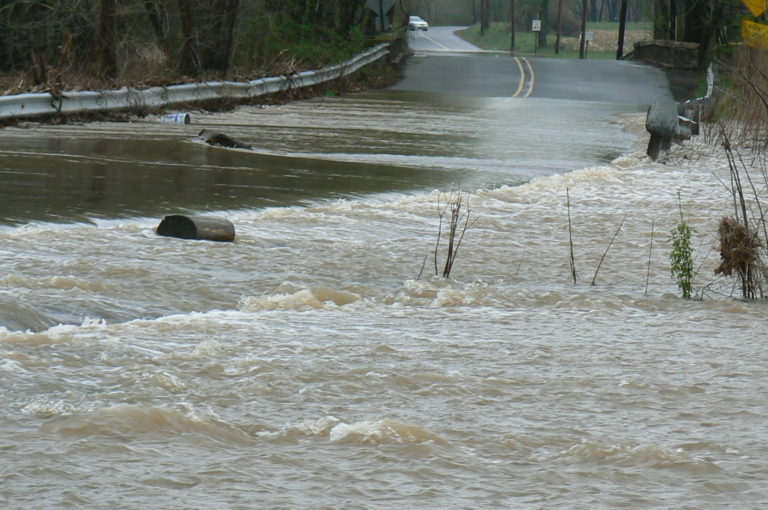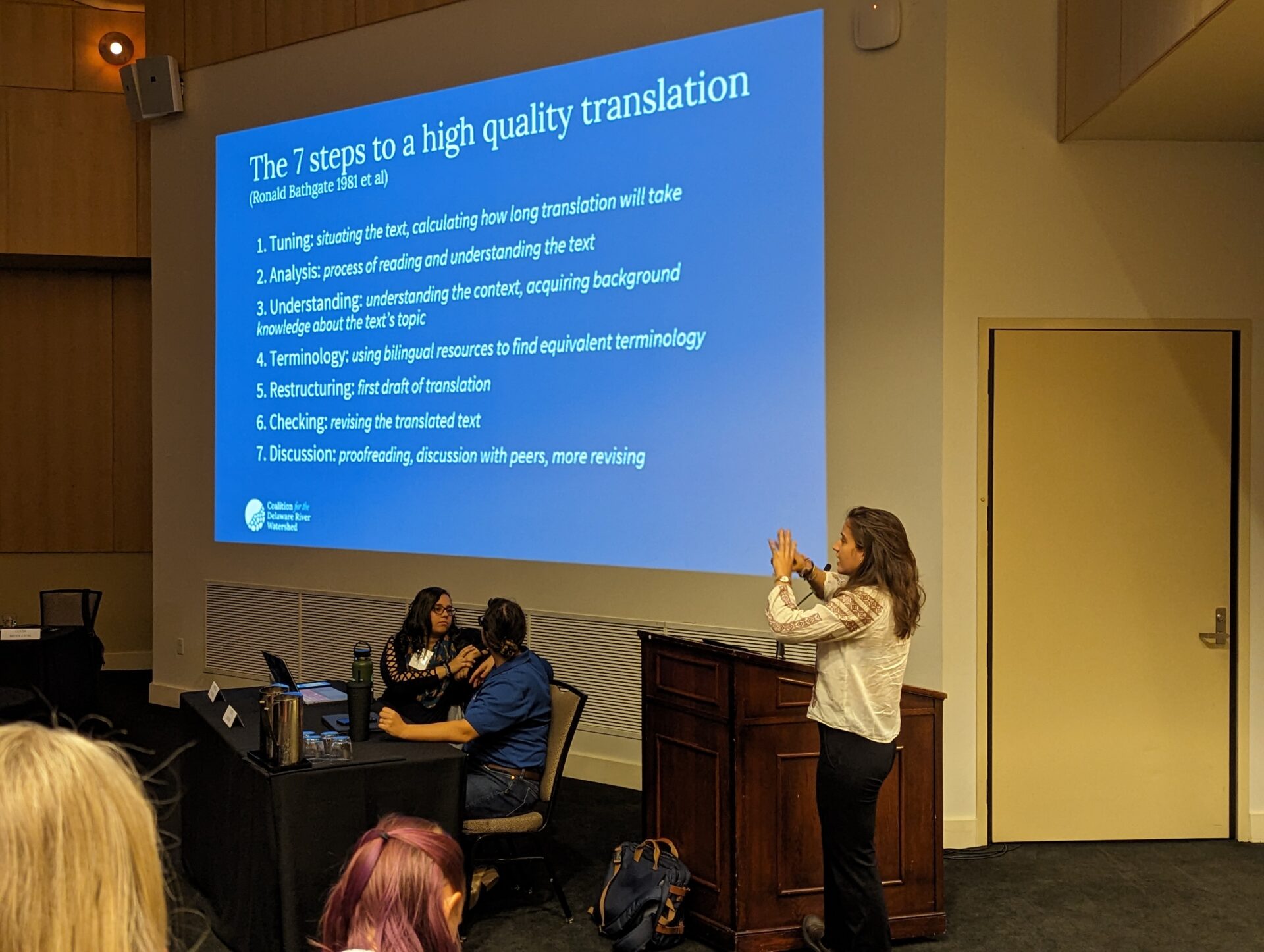 On September 29, Community Water Advocate Lucia Middleton and Outreach and Inclusion Manager Pri Oliveira presented together at the 11th Annual Coalition for the Delaware River Watershed Forum about issues related to justice, equity, diversity, and inclusion in the environmental field.
On September 29, Community Water Advocate Lucia Middleton and Outreach and Inclusion Manager Pri Oliveira presented together at the 11th Annual Coalition for the Delaware River Watershed Forum about issues related to justice, equity, diversity, and inclusion in the environmental field.
Lucia spoke about the importance of translating environmental information from English to Spanish. This included the most common challenges that organizations face, such as the lack of state laws requiring translation, free resources, and internal and external collaboration. Many Spanish-speakers in the US have lost their lives due to poorly translated information, which Lucia stressed as a reason for state governments and organizations to have more urgency in providing high quality, accurate translations. She concluded her presentation by discussing some best practices that organizations should incorporate, such as fostering relationships with community organizations that have strong ties to the target population, creating translations that use language that is accurate to the region the target community is from, and assessing the impact and effectiveness of the bilingual outreach on a somewhat regular basis.
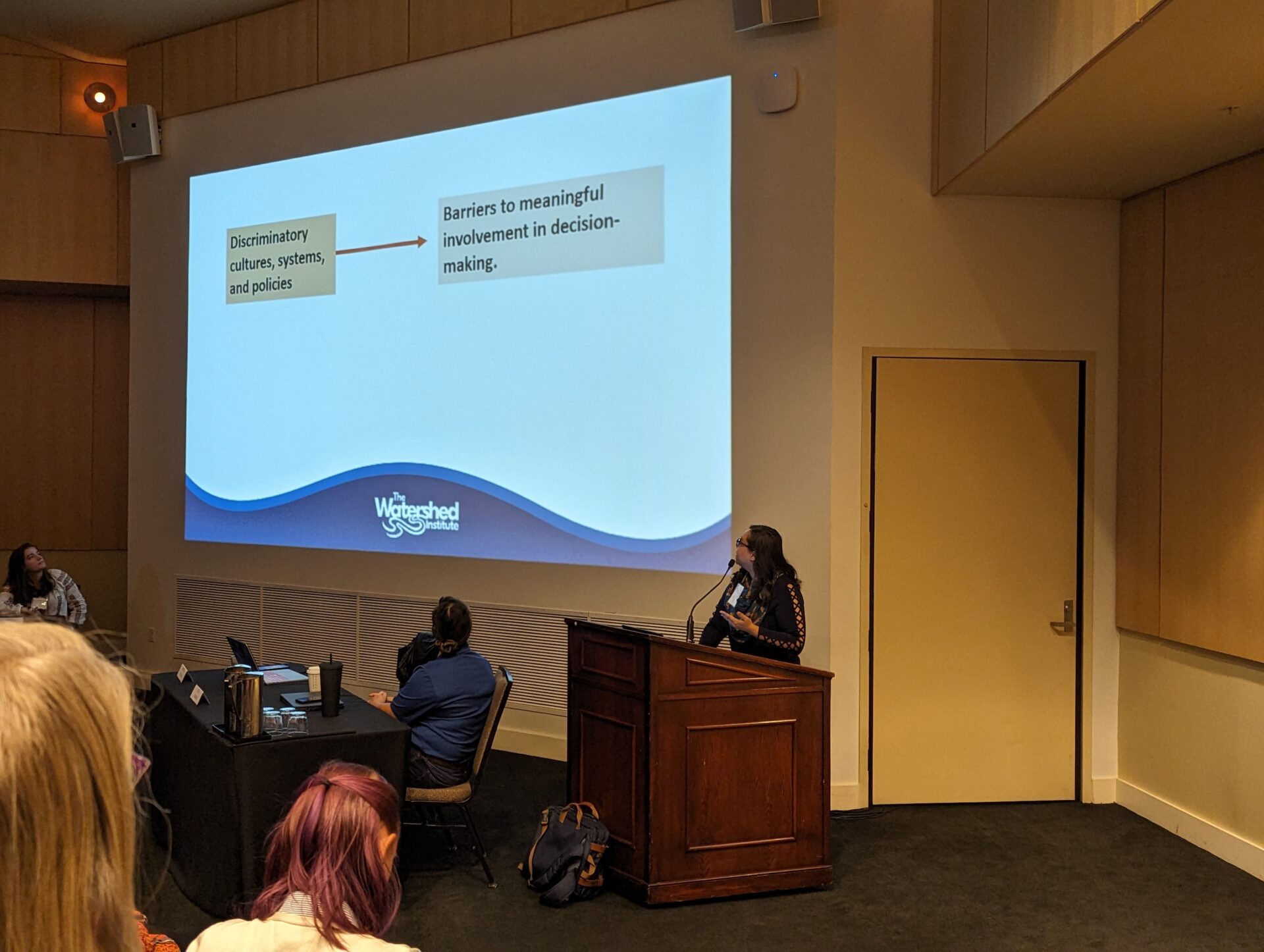
Pri challenged the audience by discussing the next step from allyship to empowerment. She started with a simplified framework to address what disempowerment is: how discriminatory cultures, systems, and policies have led to barriers to meaningful involvement in decision-making for our watersheds which have led to the marginalization and disenfranchisement of populations from green/open spaces and environmental education. Empowerment is intentionally stepping back and supporting decision-making power by marginalized communities. We want communities to own and take care of their own environment. Pri highlighted examples of how The Watershed Institute is transferring power, recentering, and following through with empowerment. She discussed The Watershed Institute’s new effort to offer more accessible and inclusive participation at the board level. She also gave a brief overview of our advocacy training programs which recenter environmental advocacy away from just our organization and emphasizing community member voices.
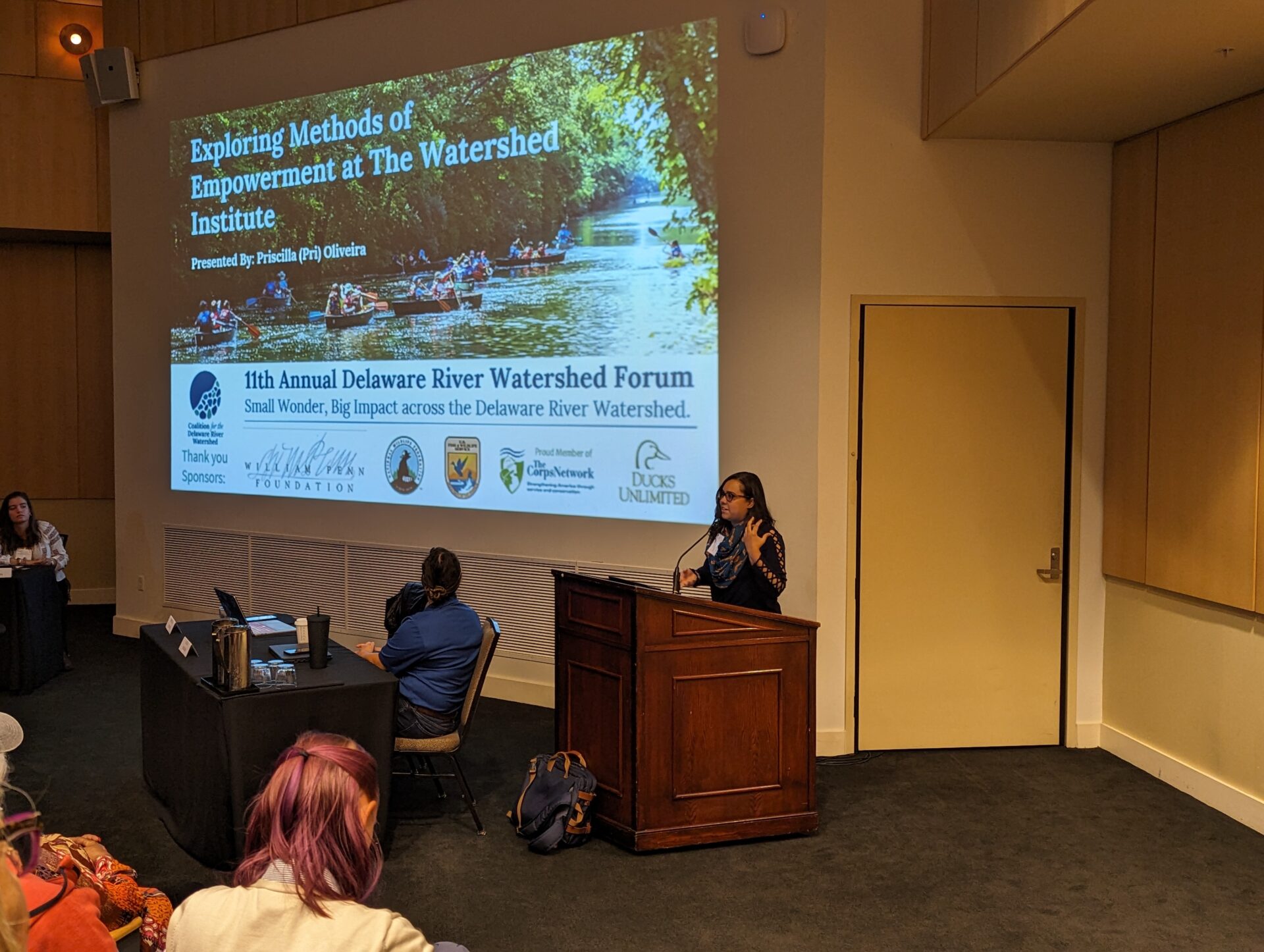
Finally, Pri discussed how communications need to incorporate empowering language versus the deficit-based language often associated with marginalized communities (I.e., at-risk, underserved, disadvantaged, poor, etc.). She concluded her presentation by admitting that the hardest thing to do is to give up your seat, your microphone, when you feel like you’ve worked so hard to reach a certain point. There are no easy answers to things like community investment, operational support, and proactive support. If we’re truly working towards social change, Pri encouraged that we need to consider these hard questions; we need to lift voices from marginalized communities even when we’re not involved in efforts; and we need to follow through with what those communities are already asking of others even when it’s difficult.

